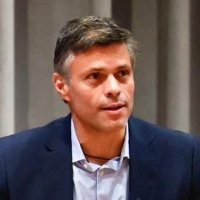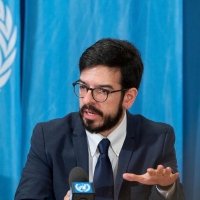Venezuela’s Democratic Unity Platform and the Search for Democratization
In recent years, Venezuela has witnessed an economic, humanitarian, political, and social collapse. The COVID-19 pandemic has further devastated the Venezuelan economy, leading to even deeper poverty and deprivation.
In May 2021, numerous political parties and civil society organizations in Venezuela issued a call for a process of negotiations to “alleviate the suffering of our people, contribute to the re-institutionalization of the country, with an electoral timetable with conditions that permit Venezuelans to freely decide our future.” The announcement by the opposition Democratic Unity Platform thanked the government of Norway for its efforts to bring about negotiations as well as the international community for its support for a negotiated solution.
Can negotiations resolve Venezuela’s overlapping crises? How can the international community best support the efforts to achieve a peaceful, democratic outcome in Venezuela?
Watch our discussion with leading representatives of the Venezuelan opposition about the prospects for, and path toward, a democratic outcome in Venezuela.
Selected Quotes
Leopoldo López
“We all need to keep unity around the issue of Venezuela. We hope that Venezuela does not become a problem that divides the opinion here in the United States, but that it’s an issue that unites. Because in the end what we need is a solution to a political problem that has become a humanitarian crisis.”
“I believe that one of the answers to why Maduro is still in power in Venezuela is because of the support that he has [been] getting from China, Russia, Turkey, Iran, Cuba, and in order to counterweight that support that Maduro has in Venezuela, we need the leadership of the United States. The United States needs to be engaged, the United States needs to lead, and I would even go as far as saying that if the United States does not engage in this process there is no possibility that this process will be successful.”
“Venezuela is a laboratory of the influence that these authoritarian regimes are taking in Latin America. And it’s very clear that all of these countries have different interests in Venezuela—China has and economic interest, Russia [is] more geopolitical with the military relationship that they have with the regime, Turkey… [has] a relationship through the extraction and refining gold, Iran with energy and military supply—but they all are supporting the dictatorship, and we believe that in order to have a successful negotiation one of the elements is to bring in these countries to the process. Because they are stakeholders, whether we like it or not, these countries are there and they impose a great deal of influence [on] the Maduro regime.”
Miguel Pizarro
“I believe… now there is a broader understanding in the world that what we are living inside of the country and what’s happening in the region is not because of two political factions that are unable to find a way out or two political factions that are too radical to recognize each other. Now everyone understands that it’s a dictatorship with all the control of the state forces and all the state institutions preventing the people [from] having food, from having medicine, from having civil and political rights.”
“We are not aiming only for an electoral humanitarian solution for the short term. What we are telling… the countries and what we are telling these negotiations is that we understand that… what we are trying to build now in these negotiations is the country that we are going to have for the next 30 or 50 years. So that means that also we understand that there’s part of a regime that’s going to continue existing inside of the country. It’s not that we are planning to erase the other part of a political war inside of a country, we understand that for them you need not only guarantees, you also need to build the right incentive.”
“There is a bad approach to certain parts of the conversation—in DC and Europe sometimes—that maybe Maduro is what we have and we should clean the cage, not try to open the cage to let the people out, and [instead] try to have better conditions but with Maduro. And that is simply impossible to do, because while Maduro remains in power, all the scaling up of assistance, all the access to international credit, all the insurance that the world economy needs from a country to be part of that financial system is not going to be in place.”
Speakers

National Coordinator of the Voluntad Popular political party, Venezuela

Introduction

Moderator

Hosted By

Latin America Program
The Wilson Center’s prestigious Latin America Program provides non-partisan expertise to a broad community of decision makers in the United States and Latin America on critical policy issues facing the Hemisphere. The Program provides insightful and actionable research for policymakers, private sector leaders, journalists, and public intellectuals in the United States and Latin America. To bridge the gap between scholarship and policy action, it fosters new inquiry, sponsors high-level public and private meetings among multiple stakeholders, and explores policy options to improve outcomes for citizens throughout the Americas. Drawing on the Wilson Center’s strength as the nation’s key non-partisan policy forum, the Program serves as a trusted source of analysis and a vital point of contact between the worlds of scholarship and action. Read more
